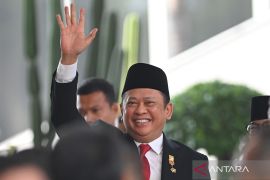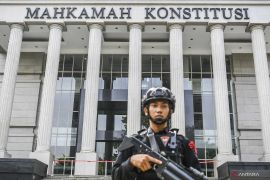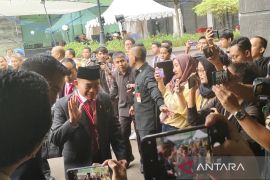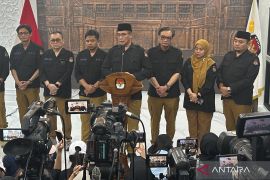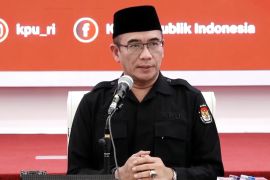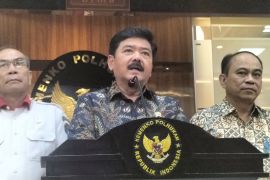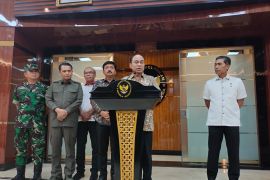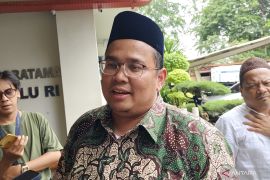Before 2000, telecommunication network was only used for calling or sending text messages.
Thereafter, telecommunication networks were capable of providing internet data service, although the speed of data access was not yet adequate during the 2000-2010 period.
Currently, most of the country's territories have already enjoyed adequate internet access speed. The development of telecommunication networks is also followed by hardware and software developments.
Now, everything is connected with the internet network and existing software applications whether in computers or gadgets.
Services in the finance, commerce, health, education, public services, licensing, online markets, and even transportation sectors have been digitalized within the network.
The COVID-19 pandemic, which plagued the world in the last two years, also expedited the development of information technology and digitalization.
Many transitioned to using online network due to restriction in physical interaction to prevent the chain of COVID-19 transmission.
Despite this, several aspects are not yet connected with information technology and digitalization, such as the democratic event held every five years, the general election, and regional head election.
In the last general election, the General Elections Commission (KPU) had already headed toward election digitalization, such as by featuring the nomination system and political party information system.
However, the model within the network has not become the main aspect in the election.
The general election still refers to conventional stages, system, and method, which is undertaken with various physical evidences as the main reference point, such as nomination and vote recapitulation.
As a result, in the 2024 General Election, there is no regulation ratifying the use of information system and digitalization in the electoral process.
Referring to the developments in information technology, digitalization, and the pandemic that necessitated social restrictions, several parties encourage the election to transition from the conventional method to digitalization.
The digitalization course initiated is digitalization of stages in the election and not electronic voting or e-voting.
However, there are also several parties that question whether election digitalization is necessary, given the condition of the telecommunication network and the people's technological capabilities.
The digital space has rapidly developed, but supporting aspects, such as the internet, have not been distributed equally across the country.
It is time
Deputy Speaker of the House of Representatives' (DPR's) Commission II Saan Mustopa stated that it is time for the 2024 General Election to accommodate the use of information technology for digitalization.
"(When it comes to) the complexity of general election, if technology is not used, this certainly would be a problem," he remarked.
"It is important for everyone, especially the organizers, to create various innovations," he remarked.
The reality is that there are still many people unskilled in technology despite the recent rapid growth of use of information technology.
Indonesia's digital literacy is still low and the telecommunication network infrastructure that supports information technology is not yet equally distributed in regions.
However, this condition is not an excuse to not start the digital transformation of elections. This has become a demand in the present time.
Digitalization of election is necessary, given the complexity of organizing the event in Indonesia. The complexity of organizing the election was felt during the 2019 General Election.
Several human resources had fallen during the 2019 General Election. One of the causes was exhaustion while completing stages related to the conventional or manual method and system.
An example of this concerns the vote recapitulation process undertaken in stages, starting from the voting booth, sub-district, district or city, province, to central level.
Recapitulation is also followed by result determination at every stage.
The manual works finally caused various parties, not just the organizers, to experience extreme exhaustion due to the massive work burden.
However, digitalization, using the electronic recapitulation system (Sirekap or e-Rekap), will reduce the organizers' and security workers' workload since they do not have to conduct recapitulation at every stage. The process will also become faster.
During the 2024 General Election, organizers not only have to organize the general election but also the regional head election simultaneously.
This will increase the burden of organizers and will become an issue of its own if information technology is not utilized.
Election digitalization
In fact, the KPU has designed and striven to realize the use of information technology in the general election long ago. The KPU has utilized the Political Party Information System (Sipol) during the political party registration period.
The commission has also designed various election technologies, such as nomination information system, voters data updating system, logistics information system, and electronic recapitulation system of the vote counting results.
For Sirekap, the KPU has already undertaken several trials within the last two years as an effort, so that election digitalization can be implemented in the 2024 General Election.
The KPU also plans to be able to develop a super app as a general election electronic system that provides election service convenience.
With all digitalization that can exist within a single application, political parties or voters can access the electronic system that they need in one hand.
Member of KPU Betty Epsilon Idroos cited super apps that belong to Gojek and Grab as an example.
Users can access several services that they need within one application, such as the need for transportation, food, and shopping at a mini market, and health.
In the election, voters or the public will not know the existence of Silon, Sipol, Sirekap, Silog, and Sidalih when the election begins. If they do, they would probably only know one of these systems.
However, by integrating the entire election system within one super app, election participants or voters can know and utilize the system efficiently.
The use of technology in the election is a good thing, though the most important aspect to consider is the readiness and options of technology that the people need.
Related news: Widodo's statement bolsters hopes of peaceful election: MPR
Related news: Ministry monitoring digital space ahead of 2024 elections
Editor: Rahmad Nasution
Copyright © ANTARA 2022

